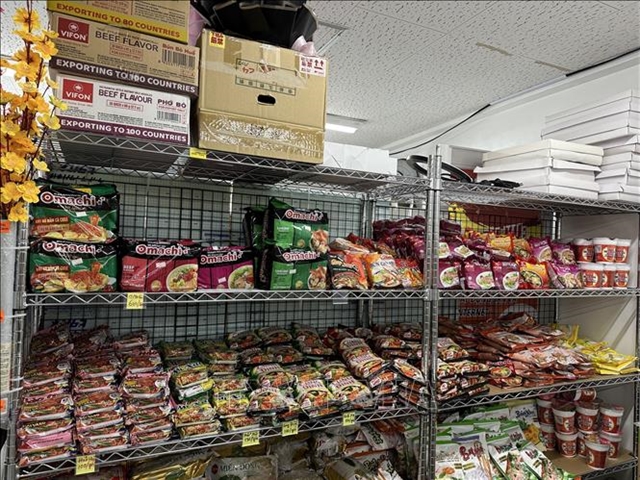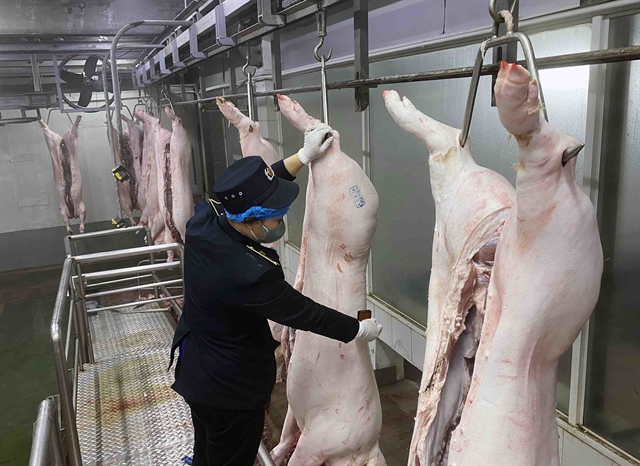 Society
Society

 |
| Veterinary staff stamp quarantine marks on animals before they are processed. — VNA/VNS Photo Vũ Hữu Sinh |
HÀ NỘI — The rate of national standards and technical regulations on agro-forestry-aquatic food safety equivalent to international standards is expected to reach 100 per cent by 2030, according to a freshly-approved project.
The project on improving the efficiency of the implementation of the WTO’s Agreement on the Application of Sanitary and Phytosanitary Measures, or the SPS Agreement, and SPS commitments within free trade agreements (FTAs), aims to enhance the management, evaluation and testing capacity in order to support businesses in observing SPS regulations set by export and import markets; maximise investment opportunities for WTO members; and expand markets for Vietnamese agro-forestry-aquatic products, and food.
By 2025, the above-said rate is projected at 70 per cent, all personnel in food safety and animal and plant quarantine management will receive training, and a national SPS portal be formed.
Also by 2025, information exchange among cooperatives, businesses, associations, management agencies in localities and the national SPS system will be stepped up through a database.
To that end, the project sets out a number of tasks and solutions such as raising stakeholders’ awareness of the SPS measures, strengthening the capacity of analysing and assessing risks of food safety hazards and diseases, harmonising domestic SPS regulations with international ones, and consolidating the national SPS system.
Deputy Prime Minister Trần Lưu Quang assigned the Ministry of Agriculture and Rural Development to work out a project perfecting the structure and functions of the SPS Vietnam Office and submit it to competent authorities for approval, along with relevant mechanisms.
It was also asked to coordinate with the Ministry of Natural Resources and Environment and other ministries and agencies to review regulations on biodiversity management and conservation.
The Ministry of Health will take the main responsibility for amending and supplementing food safety regulations. — VNS




